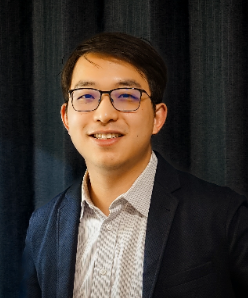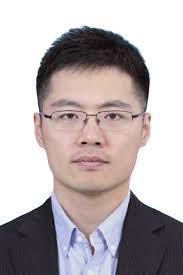Special Session 10
AI for Science in the Aerospace Research | 科学智能在航空航天中的应用
Introducation:
AI for Science is rapidly transforming the paradigm of aerospace research by leveraging deep learning, scientific computing, and generative models to convert vast, heterogeneous datasets into interpretable insights for complex physical phenomena, thereby accelerating the cycle from hypothesis to validation. In scenarios such as space propulsion, hypersonic flight, and extreme in-orbit environments, which are challenging to model accurately with traditional methods, AI for Science offers a novel approach that integrates data-driven techniques with first-principles methodologies. This special session aims to foster interdisciplinary discussions at the intersection of computational physics, machine learning, and aerospace engineering. It will explore cutting-edge applications of AI in areas such as propulsion systems, aerodynamic optimization, intelligent control, digital twin satellites, and intelligent diagnostics for flight testing. Key challenges, including interpretability, uncertainty quantification, and physical consistency, will also be addressed. We aim to provide a platform for researchers, scholars, and industry engineers to exchange ideas, share open-source algorithms, benchmark datasets, and validation cases, ultimately promoting AI as a critical enabler for discovering new knowledge, reducing development cycles, and enhancing system reliability.
科学智能(AI for Science)正迅速重塑航空航天研究的范式,它利用深度学习、科学计算与生成式模型,将海量异构数据转化为对复杂物理现象的可解释结果,从而缩短从假设到验证的闭环。面对空间动力推进、高超马赫飞行、在轨极端环境等难以用传统方法精确刻画的场景,AI for Science 提供了以数据驱动融合第一性原理的新路径。本次分会场旨在汇聚计算物理、机器学习与航空航天工程的跨学科讨论,探讨 AI 在动力推进、气动优化、智能控制、数字孪生卫星、飞行试验智能诊断等方向的前沿应用,并关注可解释性、不确定性量化与物理一致性等关键挑战。我们期望为专家学者与一线工程师搭建交流平台,分享开源算法、基准数据集与验证案例,推动 AI 成为发现新知识、缩短研制周期、提升系统可靠性的重要助力。
Organizers:
 |
Tianhan Zhang, Beihang University, China
Tianhan Zhang is a Professor and PhD Supervisor at the School of Astronautics, Beihang University. He earned his bachelor's degree from Peking University and his PhD from Princeton University. His research focuses on AI for Science and propulsion systems, with over 30 publications in leading journals such as Combustion and Flame, Proceedings of the Combustion Institute, Fuel, AIAA Journal, and Computer Physics Communications. He has served as the convener for various academic conferences, including the symposium at the National Youth Combustion Academic Conference, the Combustion and Aerospace Propulsion Sessions at the China Machine Learning and Scientific Applications Conference (CSML. He has been invited to deliver keynote presentations at events such as the National Youth Combustion Conference, the Combustion Chemistry Session at the China Chemistry Annual Meeting, the Symposium on Detonation and Novel Propulsion, the International Conference on Fluid Dynamics, and the International Symposium on Physics of Fluids, and has received the Excellent Young Scholar Award. His work has been supported by funding from sources including Microsoft, projects under the National Natural Science Foundation of China's Major Research Program, and the National Natural Science Foundation of China's Excellent Young Scientists Fund.
|
 |
Weiran Yao, Harbin Institute of Technology, China
Weiran Yao is a Professor and PhD Supervisor at the School of Aerospace Engineering, Harbin Institute of Technology (HIT). He serves as Deputy Director of the Key Laboratory of Autonomous Intelligent Unmanned Systems under the Ministry of Industry and Information Technology, a selectee of the 7th "Youth Talent Support Project" by the China Association for Science and Technology, leader of the Heilongjiang Province Chunyan Young Talent Team, and a recipient of HIT's "Qihang Scholar" and "Young Top Talent" programs. His primary research areas include autonomous decision-making for unmanned systems, multi-robot task planning and control, with over 50 published papers, 2 monographs, and more than 30 national invention patent applications. He has led projects such as the National Natural Science Foundation of China's General and Youth Funds, national ministry-level fund projects and sub-projects of major initiatives, and Heilongjiang Province's Excellent Youth Project. He has also participated in national key R&D programs and key projects of the National Natural Science Foundation. His accolades include the Second Prize of the National Technical Invention Award (4/6) and the First Prize of a National Ministry-Level Technical Invention Award (4/6). |
Submission Guideline:
Please submit your manuscript via Online Submission System: https://easychair.org/my/conference?conf=meae2025
Please choose Special Session: AI for Science in the Aerospace Research

